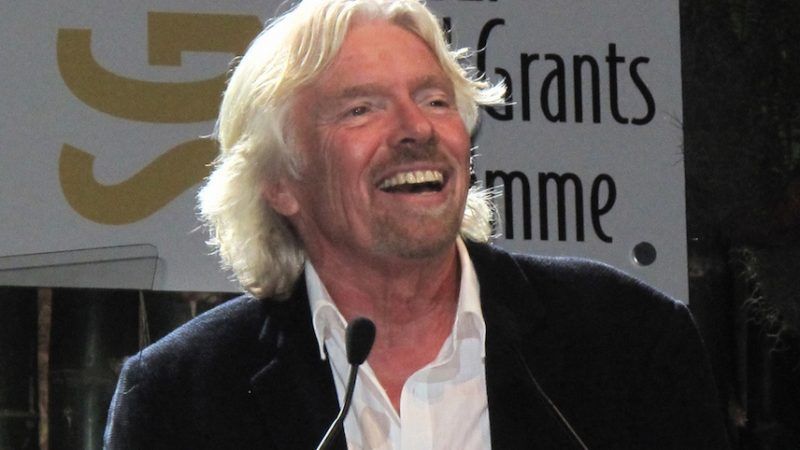Why Society Hates Entrepreneurs
American culture is fickle about wealth makers.

We're fickle about entrepreneurs, at least if they actually become successful. Whether or not they add value to society is beside the point.
When they're handsome and charismatic entrepreneurs are "innovators" and "game changers." They get invited to sex parties in Davos. If they're homely or awkward, they are merely wealthy drivers of inequality, and thus, evil.
That's because our culture simultaneously hates rich people but loves celebrities. When entrepreneurs manage to become celebrities, they are exempted from socialist tirades. I made this diagram to help:
Richard Branson epitomizes this. His charisma is so potent it could derail a train. He amassed a fortune in the music industry (cool) and airlines (fun) and was prescient enough to name both companies "Virgin" which reminds us of sex. When a photo once surfaced of Branson windsurfing with a topless model, our collective reaction was "What a fun dude!"
Had Mark Zuckerberg done that we would have said: "What a jerk! Here we are hard at work while that plutocrat cavorts with models." This is because we believe Mark Zuckerberg to be a dork, whereas Richard Branson is an Aryan shampoo ad come to life.
None of this collective ire is rooted in anything substantial. Zuckerberg helps millions of Americans skip their high school reunions by using his free online service to see our old classmates fall to pieces and blimp up remotely. It used to be when we got bored at work and wanted to zone out we'd take smoke breaks. Now we can just dawdle on Facebook and avoid the cancer. I'm perfectly fine having Zuckerberg make billions from this great idea, but lots of folks resent him.
I'm also glad we've come around to acknowledging the good in Bill Gates, but that's a new development. Back in the 1990s, when Microsoft was propelling mankind forward in some kind of new Industrial Revolution, the media portrayed Gates as the boss of an ominous multinational conglomerate.
What changed? Did we come around to appreciating his technological contribution to Planet Earth? Did we notice his subsequent philanthropy projects that make the United Nations look like a high school prom committee?
No. Steve Jobs died.
If you recall, prior to his death Steve Jobs was way, way cooler than Bill Gates. Both revolutionized computers and made them available to the average consumer. But Jobs beat out Gates because he had:
- A cool turtleneck
- Stylish glasses
- Designer stubble
However brilliant, Gates can't pull off a chic turtleneck. America just couldn't warm up to him until Jobs kicked the bucket. Only then did Gates become the Silicon Valley icon. Why was Jobs so much more deserving of borderline religious adulation? Because he was a celebrity.
The next time one of your friends pops off about thieving Wall Street traders and evil hedge fund managers, politely ask him if he'd grab a pitchfork and go looking for Warren Buffet. Pay attention to the mental gymnastics. What, attack the Prophet of Omaha? He's cute. He says the right things. He might be the old guy from "Up!".
Many Americans do not view wealth as something created by individuals, but as a naturally occurring, spontaneously generated resource unfairly hoarded by capitalists. Successful entrepreneurs are dark forces in this worldview, because they took so much more, presumably from other people.
But you don't build a prosperous society demonizing success. Doling out exemptions based on celebrity is evidence of a shallow culture. We revere George Clooney and not Jeff Bezos, but who is going to make sure you get your best deal and the free shipping? George has never once been known to beam entire libraries into a Kindle.
What we should value most as a society, of course, is people who write pithy political satire with a pro-liberty slant. But we should also revere men and women who push technology forward, make goods cheaper, services faster, create jobs, and invent things like fidget spinners. The staples of modern life, from smart phones to Netflix, come into existence because of entrepreneurs.
Maybe we'll get to a point where the people who add value to society are our celebrities. Until then, I'm going to go kite surfing with naked models as often as I can. When success comes, I'll be ready for it.


Show Comments (68)